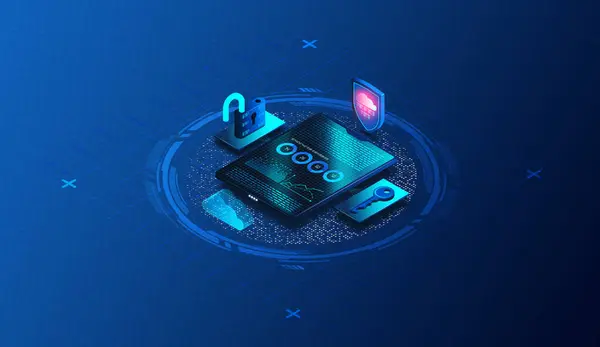
Digitizing Real Business with Tokenization, Such as Golden Coin
In recent years, the business world has been undergoing a technological revolution. One of the key elements of this transformation is digitization, which affects all aspects of entrepreneurship, from process management to customer interaction. One of the most promising areas of digitization is the creation of tokens, such as Golden Coin, which can radically change the ways businesses finance, manage, and develop real-world operations. In this article, we will examine how tokenization benefits companies and the advantages it brings.
1. The Concept of Tokenization and Its Role in Modern Business
What is Tokenization?
Tokenization is the process of converting rights to real assets into digital form. In simpler terms, it’s the creation of digital equivalents of real-world assets, whether they are shares, real estate, or goods. These digital equivalents, known as tokens, can represent a stake in a company, a share of profits, property rights, and much more.
Golden Coin is one example of such a token that can be used to represent real assets and rights. This token is created using blockchain technology, ensuring its security, transparency, and global usability.
The Role of Tokens in Business
Tokens like Golden Coin play a crucial role in the digitization of businesses. They allow companies to attract investments, manage their assets, and interact with customers in a new, more efficient way. Tokens enable businesses to significantly simplify and accelerate processes that previously required substantial time and resources.
2. Advantages of Tokenization for Business
1 – Attracting Investments
One of the most obvious advantages of tokenization is the ability to raise capital. Companies can issue tokens representing a share of their business or rights to certain assets and sell them to investors worldwide. This is particularly relevant for startups and companies seeking new sources of funding.
Tokens allow companies to bypass the limitations of traditional financial markets and raise funds directly from investors without intermediaries. This makes the process more transparent and efficient.
2 – Increasing Asset Liquidity
Tokenization increases the liquidity of assets that were previously difficult to sell or inaccessible to a broad audience. For example, real estate or artworks, which traditionally have low liquidity, can be broken down into tokens and sold in parts. This makes such assets accessible to a wider range of investors and simplifies their buying and selling processes.
3 – Simplifying Management and Accounting Processes
Tokens on the blockchain allow for the automation and simplification of many processes related to asset management and accounting. Through smart contracts, companies can create automated systems for profit distribution, shareholder voting, and even supply chain management. This significantly reduces administrative costs and eliminates errors related to human factors.
4 – Expanding Markets and International Growth
Tokens enable businesses to enter the international market without the need to undergo complex registration and licensing procedures in different countries. Blockchain technology ensures the global accessibility of tokens, opening up new markets and opportunities for expansion.
5 – Transparency and Trust
One of the main advantages of tokens is transparency. All information about transactions and asset rights is stored on the blockchain and can be verified at any time. This increases investor and partner trust in the company, reduces fraud risks, and minimizes errors.
3. Real Examples of Business Tokenization
1 – Real Estate
One of the most popular examples of tokenization is the real estate market. With tokens, companies can sell shares in large real estate projects, making them accessible to small investors. This opens up new opportunities for raising capital and simplifies the real estate sales process.
2 – Art and Collectibles
Tokenization is also finding applications in the art and collectibles market. For example, rare paintings, sculptures, or antiques can be divided into tokens and sold in parts. This allows investors to invest in art without having to purchase the entire item.
3 – Financial Markets
Traditional financial assets such as stocks and bonds can also be tokenized. This makes them more accessible to retail investors and simplifies the trading process on international markets. For instance, tokens can represent shares of companies, allowing investors to trade them around the clock and without restrictions.
4. Tokenization as the Future of Business
The tokenization of real assets such as real estate, art, and even financial instruments is becoming increasingly popular and opens up new horizons for businesses. In the coming years, we can expect significant growth in the number of companies using tokens to attract capital, manage assets, and expand their operations.
Golden Coin, as an example of such tokens, demonstrates that the future of business lies in digital assets. The use of tokens allows companies not only to modernize their processes but also to create new products and services that were previously inaccessible. This revolutionizes traditional industries and opens up new opportunities for entrepreneurs and investors.
Conclusion
Digitizing business through tokens such as Golden Coin is not just a trendy development but a real opportunity for companies to improve their processes, attract investments, and expand internationally. Tokenization is changing the rules of the game and creating new prospects for business development in the digital world.

